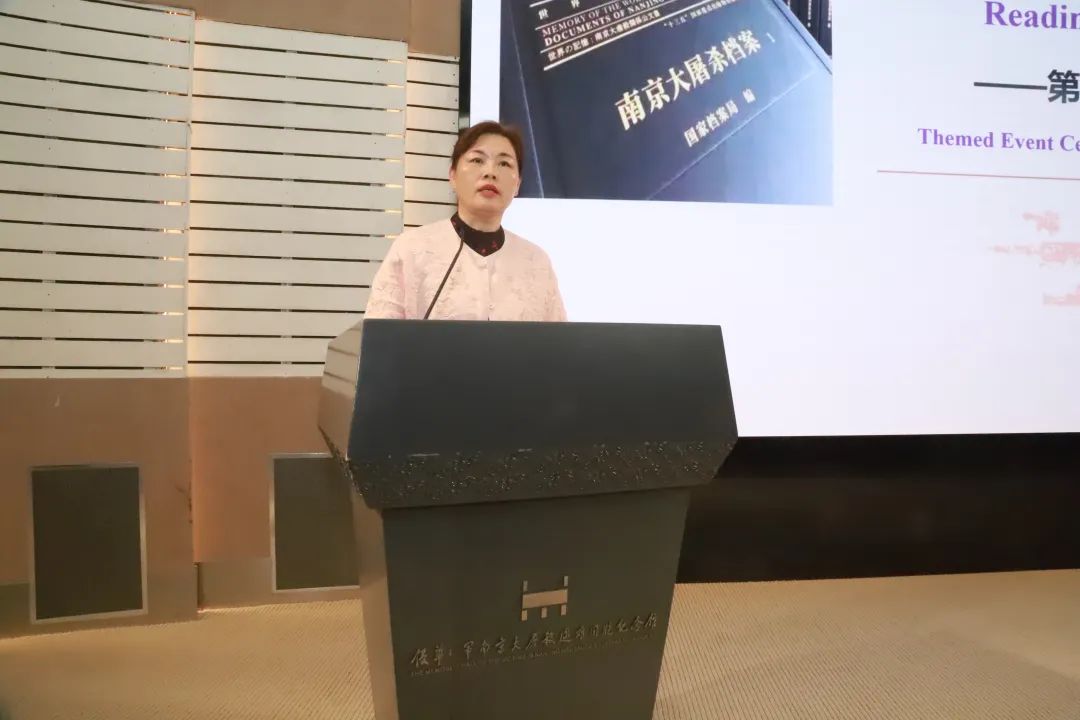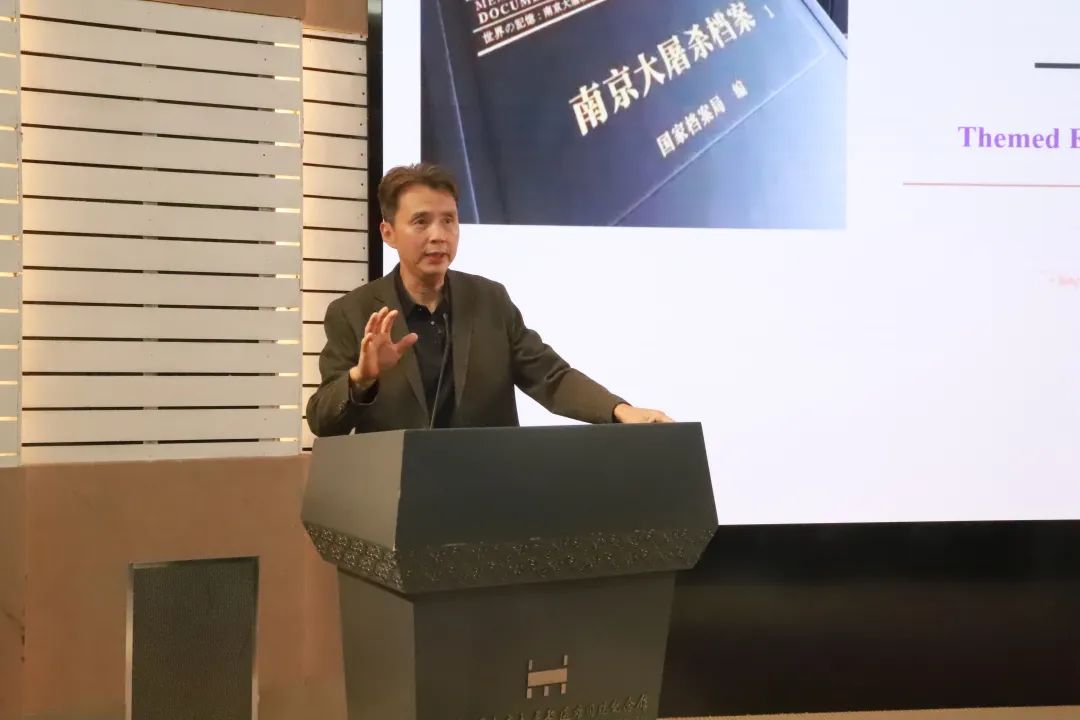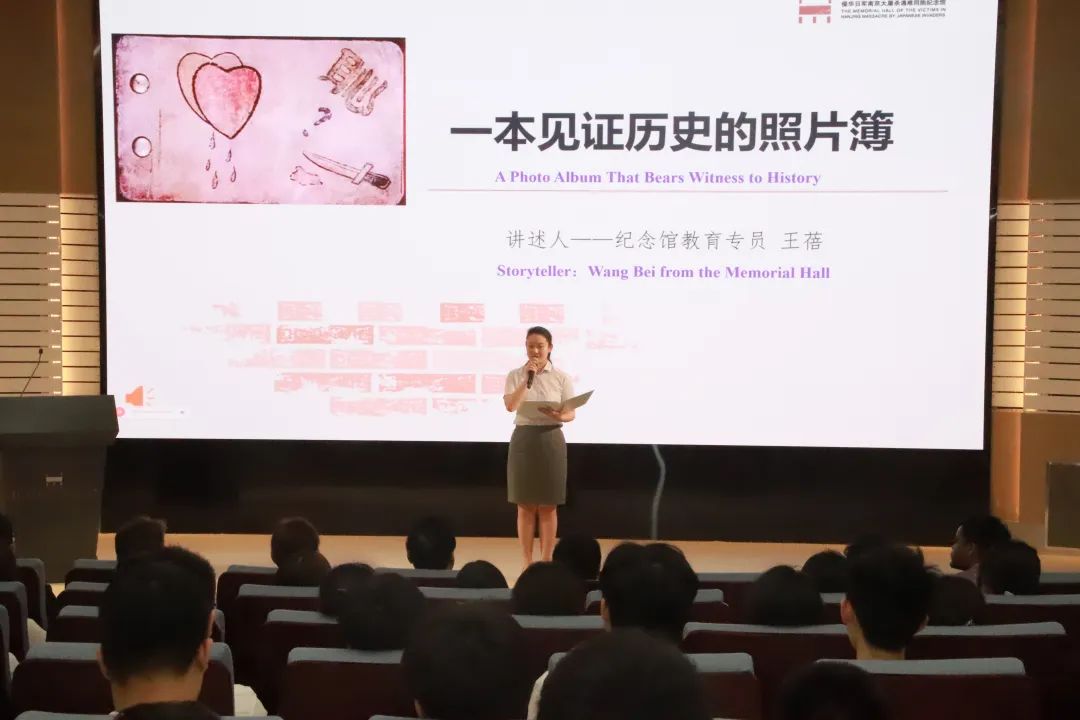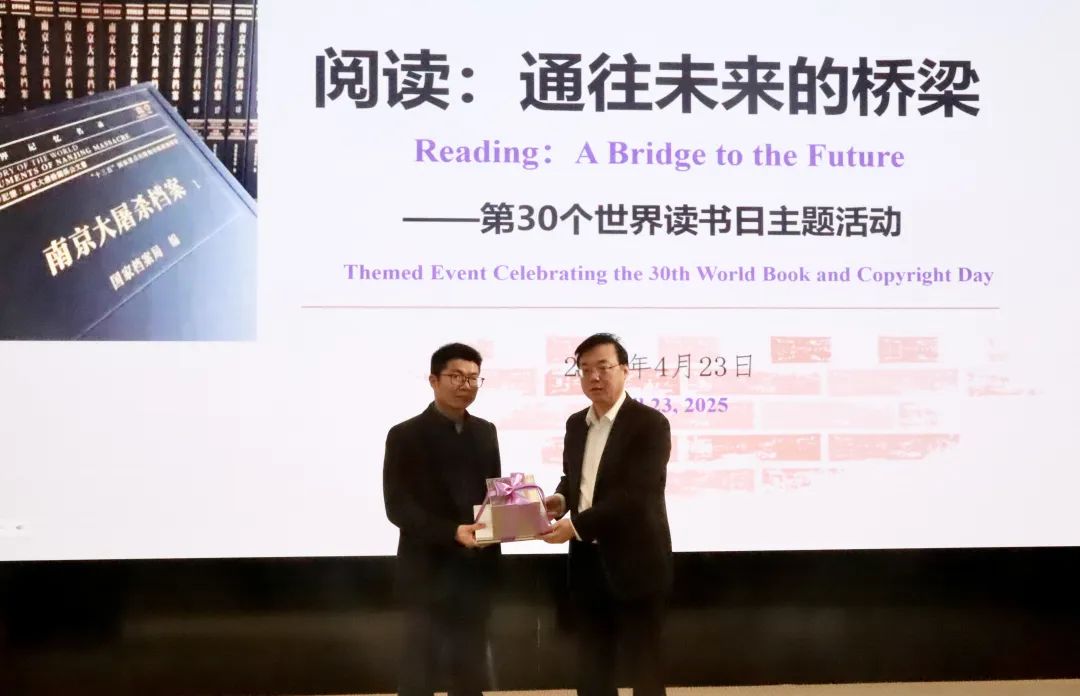Memorial and School Jointly Reading History, Conveying the Voice of Peace
Today marks the 76th anniversary of the liberation of Nanjing and the 30th World Book Day. Our memorial hall is holding a themed reading activity titled "Reading: A Bridge to the Future." Students from Nanjing Foreign Language School have visited the memorial hall to commemorate history and convey a message of peace through the reading of historical materials.
Interpreting Archives
Experts Speaking
At the event, Xia Bei, a researcher from the Institute of National Heritage & International Peace, shared the stories behind the inscription of the "Nanjing Massacre Archives" on the UNESCO Memory of the World Register and its significance. She said: "The 'Nanjing Massacre Archives' represent the painful memories of humanity. Their successful inscription is a solace to the 300,000 victims. It is a victory for peace and justice, and it ensures that such a tragedy will never happen again."

"In the exhibition hall of the memorial, there is a 16-millimeter Bell & Howell movie camera. During the Nanjing Massacre, the international friend John Magee used this camera to film the atrocities of the Japanese army in Nanjing, leaving behind the only moving images of that period. This camera and its film are an important part of the 'Nanjing Massacre Archives,'" said Yang Xiaming, a researcher at the Institute of National Heritage & International Peace, as he recounted to the students the arduous journey of Magee's footage from secret filming to rediscovery and its eventual return to Nanjing. "It is thanks to the persistent efforts of many people that the film has successfully returned to the site of the tragedy, which is something to be truly grateful for."

Reading History Aloud
Guarding the Memory of Peace
Our memorial's education officers, Wang Bei and Wang Bei, along with student representatives from Nanjing Foreign Languages School, Zou Leying, shared stories behind the "Nanjing Massacre Archives" at the scene. Zijin Grass international volunteers Semi and Naf read excerpts from The Diaries of John Rabe and The Diaries of Minnie Vautrin in English, transporting those present back to the dark and tragic times of that period.

Zou Leying said, "As students who are about to study abroad, our task is not to harbor hatred but to remember history. Once I am overseas, I hope to use my own strength to let those around me know about the horrifying tragedy that took place in Nanjing. Today is the anniversary of Nanjing's liberation. Seventy-six years ago, Nanjing was reborn. Looking back on the past pain on this special day has special significance for me. I hope that in the future, I can contribute to the development of Nanjing."
Naf said, "I hope the atrocities of the Nanjing Massacre never happen again. I often share with my family and friends in Bangladesh what I see, hear, and feel in Nanjing. I hope that by understanding history, they can better understand what peace is and cherish it."

Zhou Feng, the director of the memorial hall, presents historical books to Nanjing Foreign Languages School.
In the historical materials exhibition hall of our memorial, volunteers invited the audience to read excerpts from The Diaries of John Rabe and The Diaries of Minnie Vautrin together. Ms. Yang, who participated in the reading, choked up several times in a subsequent interview. She said that although she had seen many related movies and TV dramas, visiting the memorial was still a very shocking experience. "I am happy to see so many people visiting the memorial. This history must not be forgotten. As an international figure, Mr. Rabe extended a helping hand to the Chinese people in their time of peril. We should all be grateful to him. Reading his diary is my way of commemorating him."

